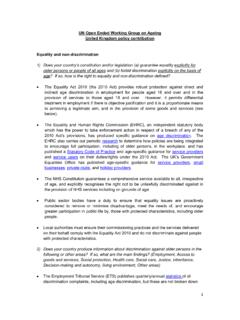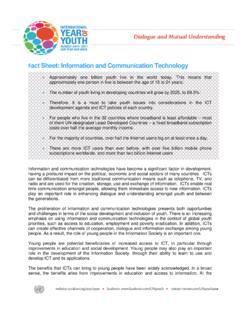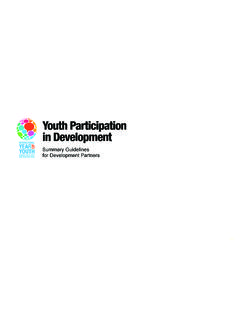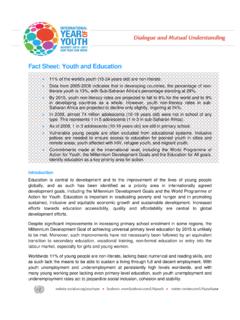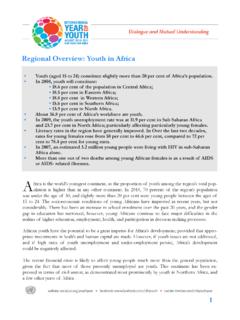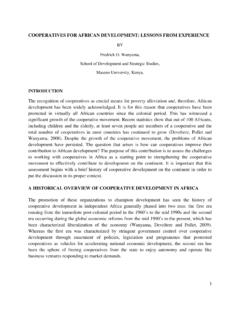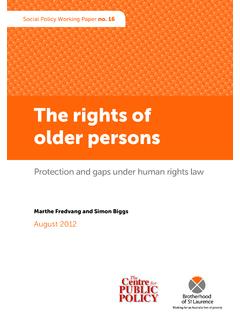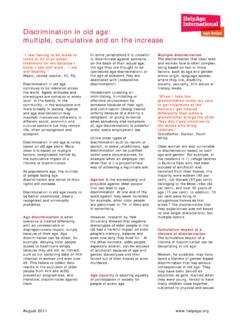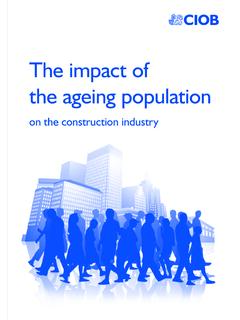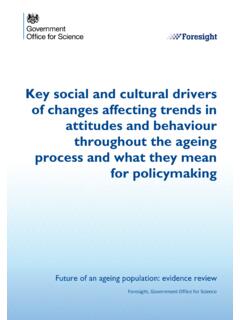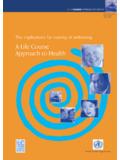Transcription of THE PROTECTION OF THE ELDERLY MODEL LAW - Un
1 THE PROTECTION OF THE ELDERLY . MODEL LAW. Drafted by: The Johns Hopkins University School of Advanced International Studies International Human Rights Clinic Spring 2012. TABLE OF CONTENTS. Preamble .3. Chapter 1: Definitions 3. Chapter 2: Rights .3. Right to Dignity 3. Right to Freedom from Abuse, Neglect, or Exploitation ..4. Right to Freedom from Discrimination .4. Right to Adequate Healthcare .4. Right to Maintenance .4. Right to Material Assistance .4. Right to Property 5. Right to Participation in Society .5. Right to Work 5. Chapter 3: Duties Duty of Third Party Caretakers 5.
2 Duty of the ..5. Duty of the State ..5. Appendix 9. 2. Preamble: Recognizing the inherent value and wisdom of ELDERLY people, which they contribute to the community, this law aims to promote respect and appreciation for the participation of the ELDERLY in the community. This law endeavors to empower, include, and protect this cherished population of every community. Furthermore, considering the often vulnerable status of the ELDERLY , the community individually and collectively shall take action to promote the rights and well being of the ELDERLY . This law purports to (1) protect the rights and interests of the ELDERLY , and (2) provide the ELDERLY with the support necessary to sustain the quality of life and dignity fitting to their respected status in community.
3 The community shall protect and promote the health and mental well being of the ELDERLY , and shall have the duty to represent and augment the lawful rights and interests of the ELDERLY . Chapter 1. Definitions Article 1. The ELDERLY For purposes of this law, the ELDERLY shall constitute those persons of an age established by domestic law that properly indicates the challenges and needs of those of an advanced age and condition and provides to them the rights and protections contained in this law. Article 2. Exploitation For purposes of this law, exploitation shall mean the unlawful obtaining of financial or other material benefit from the ELDERLY for one's own benefit.
4 Article 3. Abuse For purposes of this law, abuse shall mean the physical, mental, or material maltreatment of an ELDERLY person, including but not limited to the deprivation of food or medication, beatings, oral assaults and isolation. Article 4. Neglect For purposes of this law, neglect shall mean the omission of proper attention, supervision, or provision of necessities to an ELDERLY person, to such an extent that harm results or is likely to result. Article 5. Family For purposes of this law, family shall mean a group of persons connected to the ELDERLY person by blood, by affinity, or by law, especially within two or three generations.
5 Article 6. Third Party Caretakers 3. For purposes of this law, Third Party Caretakers shall mean institutions and individuals that have been given authority to provide direct support or services to the ELDERLY , including but not limited to all public or private institutions or individuals with legal authority to exercise control over the ELDERLY person. Chapter 2. Rights Article 7. Right to Dignity The ELDERLY have the inherent right to life, dignity, and the integrity of their persons, which shall be protected by law. Article 8. Right to Freedom from Abuse, Neglect, and Exploitation The ELDERLY have the right to be free from abuse, neglect, and exploitation.
6 Article 9. Right to Freedom from Discrimination The ELDERLY have the right to be free from discrimination. They shall be treated equally favorably, regardless of health status or disability, as other age groups. The right shall be applied to all aspects of life, including, but not limited to, employment, access to education, accommodations, and other facilities. Article 10. Right to Adequate Healthcare The ELDERLY have the right to a standard of living adequate for the health and well being of themselves, including access to affordable health care. Adequate and affordable healthcare includes medication, immunization and medical care such as physical therapy, surgery, nursing, check ups, in the event of sickness, disability, widowhood, old age or other lack of livelihood in circumstances beyond their control.
7 Article 11. Right to Maintenance The ELDERLY have the right to access basic necessities, including but not limited to, adequate nutrition and potable water necessary for their health and well being. The ELDERLY have the right to access basic amenities of life, including but not limited to, appropriate shelter, clothing, and sanitation as per prevailing societal standards. Article 12. Right to Material Assistance The ELDERLY have the right to obtain material assistance from the State. Material assistance shall be provided in the form of tangible support necessary for the maintenance of the ELDERLY at times when an ELDERLY person cannot support himself or herself or rely on support from their 4.
8 Family, including funds to support the maintenance and an ELDERLY person, nutritional food, clothing, shelter, and medicine. Article 13. Right to Property The ELDERLY have the right to maintain control over, to continue making decisions about, and dispose of property, financial affairs, and personal effects in accordance to law. Article 14. Right to Participation in Society The ELDERLY have the right to participate in education and training programs as well as social, economic, cultural, and political life. The ELDERLY have the right to preferential access to care in health and transportation.
9 Article 15. Right to Work The ELDERLY have the right to work based on their abilities. The ELDERLY have the right to just compensation and employment conditions suitable to their needs. Chapter 3. Duties Article 16. Duty of Third Party Caretakers Third Party Caretakers shall have the duty to support an ELDERLY person when authorized by the family, the State or other responsible parties to support the ELDERLY person. The authorized individuals or service organizations shall fulfill their commitments to their patients and to fulfill all duties in this law and under domestic law and keep the interests and well being of the ELDERLY in mind at all times.
10 Article 17. Duty of the Family The family of an ELDERLY person shall have the duty to care for the health and mental well . being of the ELDERLY and, in general, to provide the necessary support to meet their basic needs. The family shall have the duty to fulfill the responsibilities provided in , unless the family lacks sufficient means to do so. Article 18. Duty of the State The State shall have the duty to protect the health and mental well being of the ELDERLY when the family lacks sufficient means to do so. 5. The State shall have the duty to represent and protect the lawful rights and interests of the ELDERLY .
